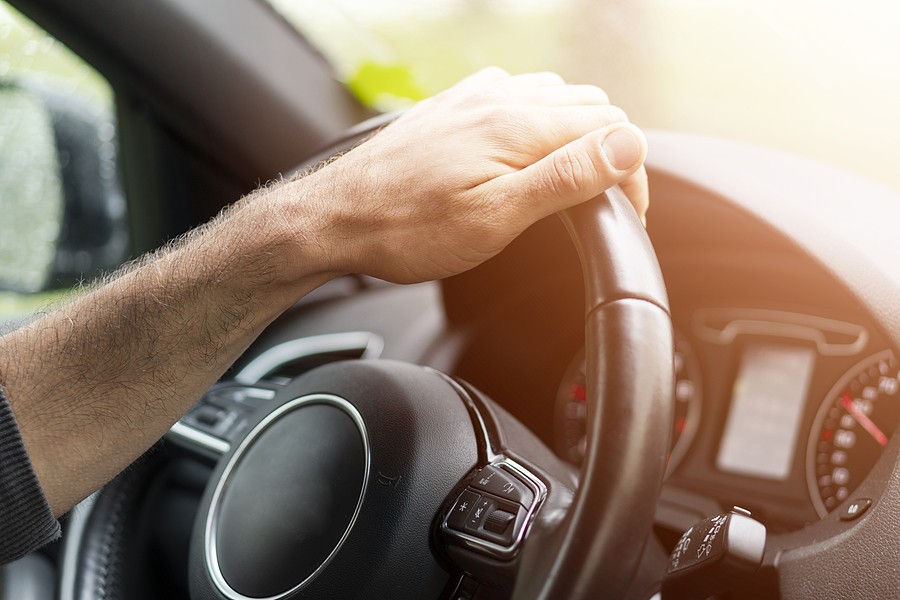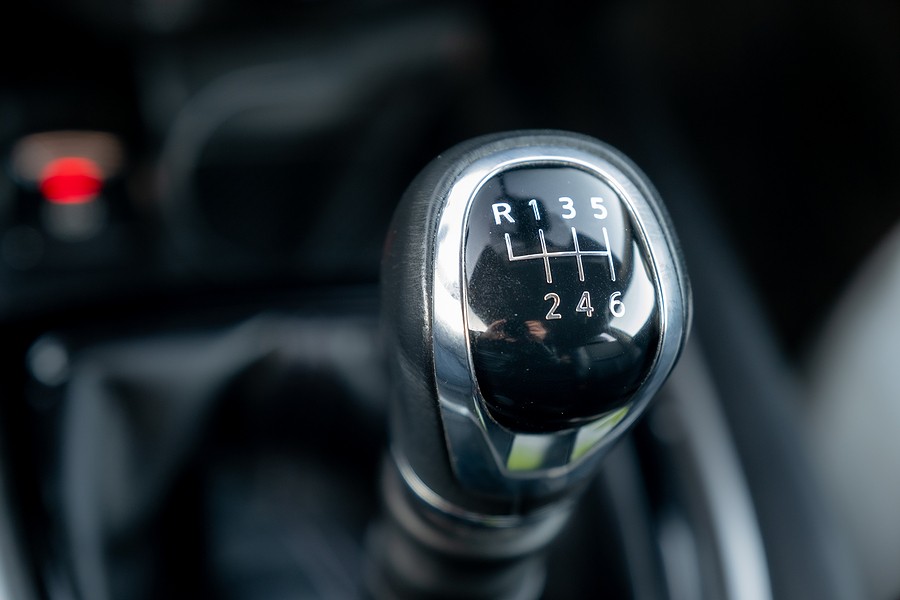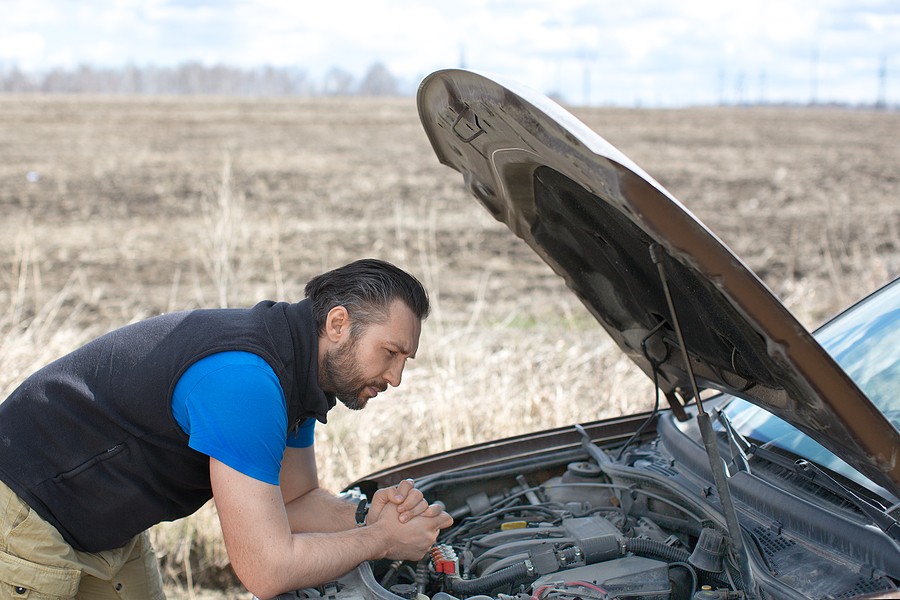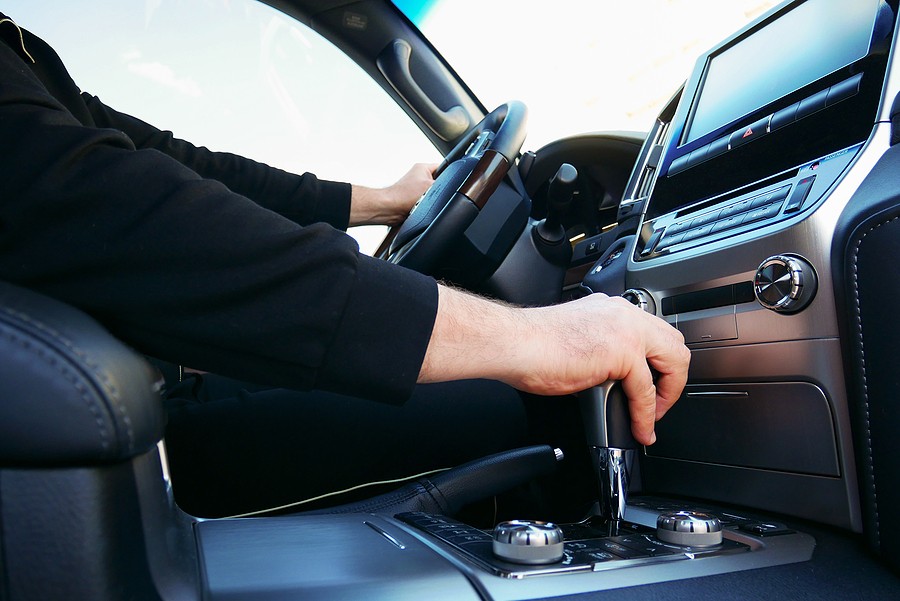If you're dealing with a car that won't go in reverse, you have a problem with one of the following:
- Low transmission fluid
- Bad transmission position sensor
- Damaged valve body
- Malfunctioning shifter mechanism
- Contaminated transmission fluid
- Damaged reverse gear
- Malfunctioning lockout ring
In the world of automobiles, there are some problems that you can postpone fixing, while other problems might require immediate attention because otherwise, your car will not be drivable.
Have you ever tried setting your car into the reverse position, and it didn't work? This can be very stressful, and it's one of the problems you cannot wait for the next day to fix.
There are many potential reasons behind a situation where your car cannot go into reverse. In this article, we walk you through 7 causes of a car that won't go in reverse. Then, we highlight each cause and some recommendations for fixing it. Finally, we provide rough estimates of how much it will cost to fix your car and get it back to work.

7 causes of a car that won't go in reverse
When your car doesn't go in reverse, you got to fix the problem mediately because this vehicle cannot be safe to be driven, and it might get you in very risky situations. The good news is that automotive experts put together a list of potential culprits behind cars that won't go in reverse. Let's take a closer look at this list:
1. Low transmission fluid
The first and most common reason your car that won't go in reverse is when you have very low transmission fluid.
The transmission fluid is one of the most critical fluids in your vehicle that must do a couple of important jobs. First, it is responsible for lubricating the internal components in your transmission, so they don't overheat, and the transmission doesn't fail.
Also, if you're driving a vehicle equipped with a manual transmission, the transmission fluid has a more complicated job which goes into the transmission functionality. So, in other words, in manual transmissions, you can run into significant problems if you don't have enough transmission fluids.
It is important that whenever your car won't go into reverse, you check the transmission fluid and confirm that you have the optimum level as specified in your vehicle's owner's manual.
If you confirm that you're dealing with a low transmission level, you must top it off and ensure that you have enough fluid.
Remember that sometimes you might be dealing with a significant internal or external leak, which can be visible when you look at the transmission fluid again and realize that it's still lost fluids.
In that case, your mechanic needs to take a closer look at the vehicle and determine where the leak is coming from and fix it immediately before you add more fluid.
2. Bad transmission position sensor
Once you confirm that the transmission fluid is at the right level, the next step is to look at the very small sensor that can also cause your car not to go into reverse. This sensor is called the transmission, which is a position sensor.
The sensor ensures that the shift lever is at the right location. If this sensor fails, it can be very hard for your vehicle's computer to understand where the liver is. Therefore, the vehicle could decide whether you're putting the vehicle in reverse or the park. Therefore, you'll be dealing with a situation where your car wants to go in reverse.
If you're a mechanic and confirmed that you're dealing with a problem related to this sensor, the next step is to check it out and fix it if it's fixable. In most scenarios, you might need to install a new transmission position sensor.
3. Damaged valve body
After checking the transmission fluids and confirming that the transmission position sensor is in good condition, the next step is to look at the valve body.
It's not rare to deal with situations where a car won't go in reverse because of that valve body.
The valve body is responsible for directing any flow to the different valves. Once the valve body is not working properly, the transmission can get confused, and you'll notice that it's hard to put your car into reverse.

4. Malfunctioning shifter mechanism
There are some situations where the whole shifting mechanism is impacted by an external problem that causes your car not to go into reverse.
You will most likely deal with other situations like issues with hard shifting, and if that's the case, then you got to look at the shifter itself because it could be the real culprit.
If your mechanic mentioned that the shifter is not working properly, the problem could be related to wiring or the cables. These cables might be bent or disconnected for whatever reason.
To get rid of the problem, start by replacing the shifter bushing first and see if this resolves your problem because it's very straightforward and it's not very expensive. If that did not help, then your mechanic has to take a closer look at the shift there to see what else is going on
5. Contaminated transmission fluid
Main readers come back to us and say that their transmission fluid is at the optimum level, and they still have problems with the car that won't reverse.
In that case, it could be that the transmission fluid is contaminated. Also, the transmission fluid gets sturdier over time because it runs around the transition and picks up some dirt; you have to replace it at some point.
Check with your vehicle owner's manual and see if you are past due for transmission flush or fluid change. New paragraph Your mechanic can't confirm to you without the transmission is in bad condition and whether you must change it immediately or not.
And a lot of times, even if your shifting problem does have to do with dirty transmission fluids, you'll see a significant improvement in the overall performance of your transmission once you replace The Dirty fluid.
6. Damaged reverse gear
In some more severe scenarios, you might have a bigger problem inside your transmission that is causing your car not to go into reverse. For example, if the reverse gear or the teeth are broken, your translation is not gotten out properly, add it won't be able to shift or to keep your car at the right gears.
Unfortunately, this situation is very extreme, and it could mean that you might need to change your transmission completely because it's not a simple problem. You've got to do something to have your vehicle working again.
7. Malfunctioning lockout ring
Finally, your vehicle contains a specific lockout ring that prevents your vehicle from shifting to reverse whenever you drive straight. This ring is extremely important, but it's not very strong, and it's not rare to deal with situations where this ring fails and causes your vehicle not to shift into reverse.
Let your mechanic look at this drink and confirm it has no problem. If it's broken or damaged, you get out of place to have your vehicle working and functioning normally.

How much does it cost to fix a car that won't go in reverse?
It all depends. As we mentioned earlier, there is a long list of potential culprits behind a car that won't go into reverse. Therefore, prices for fixing the vehicle depend heavily on the root culprit of the problem.
For example, if all you're dealing with is low transmission fluid, you can easily top it off, and this cost depends on how much that transmission fluid you're using.
On the other hand, if the problem is a faulty transmission position sensor, repair costs can range from $263 to $316.
Finally, if your problem is more critical and more severe and requires installing a new transmission, talk about thousands of dollars on repair. Typically, replacing the transmission might cause you somewhere between $1800 and $3400.
Remember that the location will also impact the entire repair cost, or you get the job done. So, for example, if you decide to do the job by changing the transmission fluid or topping it off, you don't have to worry about labor costs.
However, if you will not replace a major component, it will be a big difference in labor cost depending on if you go to a small independent shop or a big dealership.

What are the signs that your transmission is going out?
Sometimes the reverse problem might be linked to a significant problem in your transmission, so you must keep an eye close to the transmission behavior to confirm whether it's going bad or not.
Automotive experts did detailed studies to check the common symptoms of a transition going out. Let's say it goes a look at some of these symptoms:
1. Problems with shifting gears
You will start noticing that your vehicle is not shifting gears properly. If you try shifting gears, you'll find it very hard to shift gears, or sometimes you won't be able to do it completely.
2. Troubles with gears slipping
Even if you could shift the gears, in severe scenarios, the gears might split, which means it goes back to the previous gear set up every time you try to change gears.
3. Weird noises
Also, when the transmission is about to go out, it will start making some weird loud noises, typically coming from where the transmission sits. Thus, keep an eye out for any sounds coming from the transmission, and the earlier you detect these sounds, the easier it is for your mechanic to find solutions.
4. Shaking and vibrating
Many drivers notice that the transition might start shaking and vibrating closer to the end of its lifetime. Thus, if you feel the same, check with your mechanic and see what's happening with the transmission.
5. Fluid leaks
Finally, when the transmission is about to go out, it won't be able to hold the transmission fluids because of the weak seals inside the transmission.

Final thoughts
This article highlighted a very important problem that many drivers might encounter, and it's one of those problems you cannot postpone fixing. The article highlighted all potential causes behind a car that won't go in reverse.
As we indicated earlier, most of the problems have to do with the transmission, and some of them might be minor where you can fix them easily, while others are a little bit more complicated and require more money.
If you end up in a situation where you must pay a lot of money to fix your car, and this money is beyond your budget, it could be a perfect time to sell your vehicle and buy a better one.
Are you looking for someone to buy your car considering the transmission-related damages? Check out Cash Cars Buyer!
Cash Cars Buyer is one of the top-rated car removal companies in the nation that guarantees to pay you the top dollars and provide you with free towing despite your living location around the United States.
Our process is very straightforward and doesn't take more than a couple of days to get your car removed safely and for the most money.
All it takes you is to:
- Describe your car's type and condition
- Receive our instant free quote
- Accept the quote
- Get your car removed and receive your cash payment on the spot!
To learn more about our process and our team, you can reach out to us by calling us at (866) 924-4608 or by visiting our home page click on the free instant online offer.



